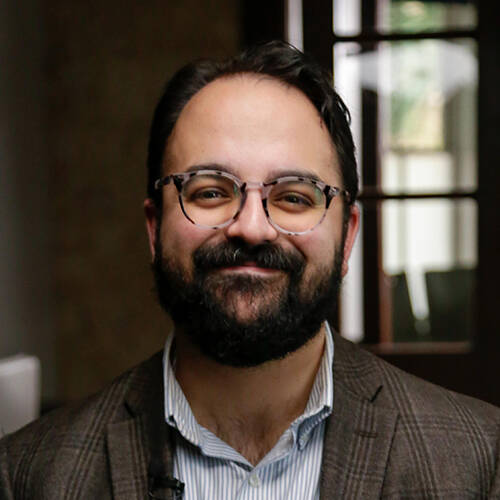One of the most important duties of a pastor-theologian is to speak truthfully. To do so is a fundamental requirement for living “with the grain of the universe” as God has designed it. Speaking truthfully involves getting the facts correctly, but it is also so much more: it is a matter of participating rightly in a world oriented toward the one who is “the way, the truth, and the life” (John 14:6). A commitment to truth is a matter of living into creation’s intent, allowing one’s mind, heart, and hands to be calibrated rightly to the order established by God.
“Calibration,” in fact, is a suggestive image for the task of truth telling. Most of the times that I’ve gone to the mechanic I have been given a long sheet of “suggestions” for improvement on my car, and among them is a recalibration of my tires. There is usually a report of how many degrees my tires have rotated out of alignment, such that if it attempts to go straight, it will in fact veer to the right or to the left. Inevitably, allowing tires that are out of alignment to drive in that state for too long will damage the tires beyond repair; hence the importance or recalibration. We speak truthfully when our hearts, minds, and actions are rightly calibrated. Truth is an orientation of one’s whole life to that which is objectively out there. Objective truth is a matter of living rightly in God’s world, and avoiding it results in regrettable damage.
Pastor-theologians, if they are to live into their divinely-constituted task, must be truth-tellers. Note that this is consistent with the broad range of tools God has given the church to engage the world, not the least of which is the “word of truth” in Holy Scripture (Ps. 119:43, Eph. 1:13, 2 Tim. 2:15, Jas. 1:18). We have been given an inerrant word, whose truth is guaranteed by the God who inspired it and whose words are necessarily true. “The word of the LORD proves true,” writes the Psalmist in Psalm 18:30, and Holy Scripture ends with an attestation that the words of the risen Christ “are trustworthy and true” (Rev. 22:6). It is the task of pastor-theologians to speak in line with this word, to speak “as one who speaks oracles of God” (1 Pe. 4:11).
Pastor-theologians who testify to the objective truth of God, however, face an immediate challenge. It is more and more difficult to call upon concepts like “human nature,” or an “objective reality,” or even to truth. As Simon Blackburn observes in his Gifford Lectures, “Today’s relativists, persuading themselves that all opinions enjoy the same standing in the light of reason, take it as a green light to believe what they like with as much conviction and force as they like. So while ancient skepticism was the sworn opponent of dogmatism, today dogmatisms feed and flourish on the desecrated corpse of reason.”1 There is a new kind of relativism with respect to truth, it seems. Rather than withholding opinion, as ancient skeptics did, the new relativism proliferates opinion, so long as it is not attached to any kind of ontological commitment.
This, of course, is not an option for pastor-theologians seeking to live rightfully in a world made by God. It is ingredient to their work that it is aimed at truth, not as something subjectively contained (“truth for me”) but as something with real stakes in the world we share. This is the burden pastor-theologians will learn to bear: that each time they preach, each time they put the pen to paper, each time they meet a congregant for coffee, they are participating in the truth that is a vital component of our created world.
Nowhere is this felt more acutely than in the realm of ethics. My area of specialization is in theology and gender, and these topics are regular points of conversation in this field of study. In particular, there is a recent proposal related to the social construction of gender called “gender skepticism” that presses an aversion to truth in a direction I have claimed in other writing2 to be highly problematic. One is a gender skeptic if one maintains that gender terms like “women” and “men” have no objective meaning because attempts to define such terms are always reducible to mere expressions of power, and it has been defended by influential theorists like Judith Butler. It is my persuasion, for reasons like those discussed above, that gender skepticism is a disastrous position, rendering any objectively truthful talk about gender impossible. If gender skepticism were true, we would be lost with regard to how to live well as women and men in God’s world. If there were no truth to gender, God would have left us in the lurch. With respect to gender, and to all other areas of human life, we need to be aimed at objective truth.
Pastor-theologians, then, who are entering a ministry context that shifts before them must be truth-tellers. They witness to a truthful God who has given us a true word in Holy Scripture, and no amount of moral complexity must allow for a relaxation of that conviction. Doing so requires regular “recalibration” to ensure that their tires are not veering in the wrong directions, and that their work is not suffering unnecessary damage. The good news is that the God who has called them will be faithful to sustain them in this work.
1Simon Blackburn, Truth: A Guide for the Perplexed (London: Allen Lane, 2005), xiv.
2See Fellipe do Vale, Gender as Love: A Theological Account of Human Identity, Embodied Desire, and Our Social Worlds (Grand Rapids: Baker Academic, 2023), chpt. 2.


